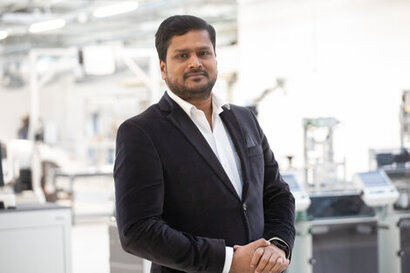
Hydrogen has steadily been advanced as an important component of clean energy technologies, particularly for hard-to-abate sectors such as steel, heavy commercial vehicles and manufacturing, thereby helping to phase out fossil fuels and accelerate the transition to net zero. However, its transportation presents significant challenges.
Hydrogen Embrittlement (H2E), which occurs most notably in steels, iron, nickel and their alloys, causes them to become brittle and fracture due to the introduction and diffusion of hydrogen into the material, and can lead to catastrophic failures and hydrogen leakage.
Researchers at Coventry University’s Institute of Advanced Manufacturing and Engineering (AME) and the Centre for Advanced Low Carbon Propulsion Systems (CALPS) are working with VIT engineering and manufacturing academics to develop safe and cost-effective storage and transportation methods using generative AI.
This two-year initiative running until 2026 has been funded by the British Council UKIERI (UK-India Education and Research Initiative), a multi-stakeholder programme that looks to strengthen the research, leadership and education between the UK and India.
The team, led by Dr Arivazhagan Anbalagan, Assistant Professor in Digital Manufacturing at Coventry University, and Dr Margret Anouncia S, Professor of Software Systems at VIT, will pave the way for safer and more reliable hydrogen transportation solutions.
“As hydrogen becomes a key clean energy focus, developing safe, cost-effective storage and transportation is crucial” said Dr Anbalagan. “Using AI to predict and prevent hydrogen embrittlement will aim to enhance storage and transportation system’s safety and reliability. Our team at Coventry University is excited about working with VIT colleagues. This project will significantly aid both countries' net-zero carbon efforts. We're prepared for this two-year journey to foster research collaboration, and innovation and strengthen educational ties with VIT through PhD studentships and joint BSc/MSc courses.”
Dr Margret Anouncia S, Professor of Software Systems at Vellore Institute of Technology, added that the collaboration under the UKIERI scheme aims to harness generative AI to tackle global industry challenges especially in manufacturing and transportation.
“Our Memorandum of Understanding with Coventry University underpins our shared dedication to advancing academic and research initiatives that promote global innovation and sustainability” said Dr Margret Anouncia S.
For additional information:

